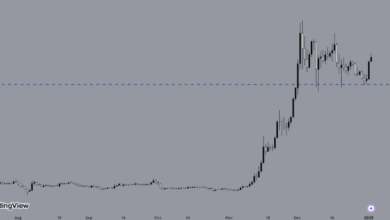The power of proactive accounting – why UK small businesses can’t afford to fall behind in 2025

Running a small business in the UK has never been easy — but in 2025, the financial landscape is more complex than ever. With evolving tax laws, stricter HMRC compliance, and increasing digital transformation, business owners are under constant pressure to stay informed and adaptable.
In this environment, traditional reactive accounting — waiting until the end of the financial year to assess performance — simply isn’t enough. The most successful businesses are those that adopt a proactive accounting approach, using real-time data and expert insight to guide every financial decision.
What is proactive accounting?
Proactive accounting goes beyond record-keeping and compliance. It’s about planning ahead, anticipating challenges, and identifying opportunities for growth before they arise.
This forward-thinking approach includes:
- Creating accurate cash flow forecasts.
- Analysing monthly management accounts.
- Planning tax liabilities in advance.
- Using financial data to make smarter business decisions.
Rather than reacting to numbers after the fact, proactive accounting helps business owners take control of their financial future.
Why reactive accounting no longer works
Many small businesses still rely on outdated, reactive accounting habits — meeting with their accountant once a year to file taxes and review figures. While this may satisfy HMRC obligations, it leaves little room for strategy or prevention.
Reactive accounting often leads to:
- Missed tax reliefs and allowances.
- Poor cash flow planning.
- Late payments and avoidable penalties.
- Missed opportunities to reinvest in growth.
In 2025, these risks are amplified by rapid regulatory changes and the digitalisation of tax reporting. Falling behind doesn’t just affect compliance — it affects competitiveness.
The role of technology in proactive accounting
Cloud-based accounting tools like Xero, QuickBooks, and FreeAgent have revolutionised how small businesses manage their finances. These platforms make it easy to track income, expenses, and cash flow in real time.
Benefits of embracing digital tools include:
- Instant financial insights and automated reporting.
- Fewer manual errors and faster reconciliation.
- Easier collaboration between business owners and accountants.
- Compliance with HMRC’s Making Tax Digital (MTD) requirements.
Technology doesn’t replace accountants — it enhances their role. It allows them to provide more meaningful, strategic guidance based on live data rather than historical reports.
How proactive accounting drives growth
A proactive accountant doesn’t just file returns — they help businesses grow. By analysing performance regularly and providing tailored advice, they ensure owners make informed decisions.
Proactive accounting supports growth by:
- Identifying cost inefficiencies early.
- Highlighting profitable products or services.
- Forecasting revenue and expenses for better budgeting.
- Helping businesses prepare for funding or investment.
For example, a small retailer can use monthly financial insights to plan seasonal promotions, while a consultancy can forecast workload and adjust staffing before bottlenecks occur.
Local insight makes a difference
Every region has its own business dynamics, and having accountants who understand local conditions can make a world of difference. Firms that know the challenges faced by entrepreneurs in specific areas can offer more relevant advice — from navigating local regulations to benchmarking against similar businesses.
For example, Fusion Accountants understand the needs of small businesses in London, providing personalised support that blends financial expertise with practical local knowledge. Whether it’s helping startups manage cash flow, advising on tax efficiency, or preparing for digital transformation, having a partner who truly understands your market ensures you’re always one step ahead.
Tax efficiency and proactive planning
One of the biggest advantages of proactive accounting is smarter tax management. Instead of scrambling at year-end to find deductions, proactive planning ensures tax efficiency all year long.
This includes:
- Timing dividend and salary payments effectively.
- Using pension contributions to reduce corporation tax.
- Claiming R&D tax credits and other available reliefs.
- Planning for VAT and corporation tax deadlines well in advance.
The result? Businesses save money, avoid penalties, and maintain a healthier cash position.
Building financial resilience
Proactive accounting also builds financial resilience — something every business needs in uncertain times. Regularly reviewing management accounts, forecasts, and budgets helps business owners adapt to changes quickly.
When revenue dips or costs rise, those with proactive financial insight can respond immediately, making adjustments that protect profitability and long-term stability.
It’s this level of preparedness that separates thriving businesses from those that merely survive.
Final thoughts
In 2025, the pace of change in business and finance is relentless. For UK small businesses, staying reactive is no longer an option. Success now depends on being proactive — using technology, strategy, and expert insight to anticipate challenges, maximise opportunities, and stay compliant.
Working with an experienced accounting partner is the first step. Fusion Accountants understand the needs of small businesses in London, helping local entrepreneurs embrace digital tools, strengthen cash flow, and build long-term financial success.
Proactive accounting isn’t just about numbers — it’s about empowerment. When you know where your business stands today and where it’s heading tomorrow, you gain the confidence to grow, invest, and plan for a stronger future.




